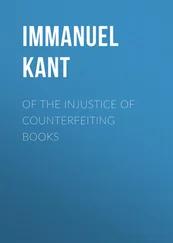But, if we begin our proof cosmologically, by laying at the foundation of it the series of phenomena, and the regress in it according to empirical laws of causality, we are not at liberty to break off from this mode of demonstration and to pass over to something which is not itself a member of the series. The condition must be taken in exactly the same signification as the relation of the conditioned to its condition in the series has been taken, for the series must conduct us in an unbroken regress to this supreme condition. But if this relation is sensuous, and belongs to the possible empirical employment of understanding, the supreme condition or cause must close the regressive series according to the laws of sensibility and consequently, must belong to the series of time. It follows that this necessary existence must be regarded as the highest member of the cosmical series.
Certain philosophers have, nevertheless, allowed themselves the liberty of making such a saltus (metabasis eis allo gonos). From the changes in the world they have concluded their empirical contingency, that is, their dependence on empirically-determined causes, and they thus admitted an ascending series of empirical conditions: and in this they are quite right. But as they could not find in this series any primal beginning or any highest member, they passed suddenly from the empirical conception of contingency to the pure category, which presents us with a series — not sensuous, but intellectual — whose completeness does certainly rest upon the existence of an absolutely necessary cause. Nay, more, this intellectual series is not tied to any sensuous conditions; and is therefore free from the condition of time, which requires it spontaneously to begin its causality in time. But such a procedure is perfectly inadmissible, as will be made plain from what follows.
In the pure sense of the categories, that is contingent the contradictory opposite of which is possible. Now we cannot reason from empirical contingency to intellectual. The opposite of that which is changed — the opposite of its state — is actual at another time, and is therefore possible. Consequently, it is not the contradictory opposite of the former state. To be that, it is necessary that, in the same time in which the preceding state existed, its opposite could have existed in its place; but such a cognition is not given us in the mere phenomenon of change. A body that was in motion = A, comes into a state of rest = non-A. Now it cannot be concluded from the fact that a state opposite to the state A follows it, that the contradictory opposite of A is possible; and that A is therefore contingent. To prove this, we should require to know that the state of rest could have existed in the very same time in which the motion took place. Now we know nothing more than that the state of rest was actual in the time that followed the state of motion; consequently, that it was also possible. But motion at one time, and rest at another time, are not contradictorily opposed to each other. It follows from what has been said that the succession of opposite determinations, that is, change, does not demonstrate the fact of contingency as represented in the conceptions of the pure understanding; and that it cannot, therefore, conduct us to the fact of the existence of a necessary being. Change proves merely empirical contingency, that is to say, that the new state could not have existed without a cause, which belongs to the preceding time. This cause — even although it is regarded as absolutely necessary — must be presented to us in time, and must belong to the series of phenomena.
On the Antithesis.
The difficulties which meet us, in our attempt to rise through the series of phenomena to the existence of an absolutely necessary supreme cause, must not originate from our inability to establish the truth of our mere conceptions of the necessary existence of a thing. That is to say, our objections not be ontological, but must be directed against the causal connection with a series of phenomena of a condition which is itself unconditioned. In one word, they must be cosmological and relate to empirical laws. We must show that the regress in the series of causes (in the world of sense) cannot conclude with an empirically unconditioned condition, and that the cosmological argument from the contingency of the cosmical state — a contingency alleged to arise from change — does not justify us in accepting a first cause, that is, a prime originator of the cosmical series.
The reader will observe in this antinomy a very remarkable contrast. The very same grounds of proof which established in the thesis the existence of a supreme being, demonstrated in the antithesis — and with equal strictness — the non-existence of such a being. We found, first, that a necessary being exists, because the whole time past contains the series of all conditions, and with it, therefore, the unconditioned (the necessary); secondly, that there does not exist any necessary being, for the same reason, that the whole time past contains the series of all conditions — which are themselves, therefore, in the aggregate, conditioned. The cause of this seeming incongruity is as follows. We attend, in the first argument, solely to the absolute totality of the series of conditions, the one of which determines the other in time, and thus arrive at a necessary unconditioned. In the second, we consider, on the contrary, the contingency of everything that is determined in the series of time — for every event is preceded by a time, in which the condition itself must be determined as conditioned — and thus everything that is unconditioned or absolutely necessary disappears. In both, the mode of proof is quite in accordance with the common procedure of human reason, which often falls into discord with itself, from considering an object from two different points of view. Herr von Mairan regarded the controversy between two celebrated astronomers, which arose from a similar difficulty as to the choice of a proper standpoint, as a phenomenon of sufficient importance to warrant a separate treatise on the subject. The one concluded: the moon revolves on its own axis, because it constantly presents the same side to the earth; the other declared that the moon does not revolve on its own axis, for the same reason. Both conclusions were perfectly correct, according to the point of view from which the motions of the moon were considered.
50 The antinomies stand in the order of the four transcendental ideas above detailed.
51 We may consider an undetermined quantity as a whole, when it is enclosed within limits, although we cannot construct or ascertain its totality by measurement, that is, by the successive synthesis of its parts. For its limits of themselves determine its completeness as a whole.
52 Space is merely the form of external intuition (formal intuition), and not a real object which can be externally perceived. Space, prior to all things which determine it (fill or limit it), or, rather, which present an empirical intuition conformable to it, is, under the title of absolute space, nothing but the mere possibility of external phenomena, in so far as they either exist in themselves, or can annex themselves to given intuitions. Empirical intuition is therefore not a composition of phenomena and space (of perception and empty intuition). The one is not the correlate of the other in a synthesis, but they are vitally connected in the same empirical intuition, as matter and form. If we wish to set one of these two apart from the other — space from phenomena — there arise all sorts of empty determinations of external intuition, which are very far from being possible perceptions. For example, motion or rest of the world in an infinite empty space, or a determination of the mutual relation of both, cannot possibly be perceived, and is therefore merely the predicate of a notional entity.
Читать дальше












